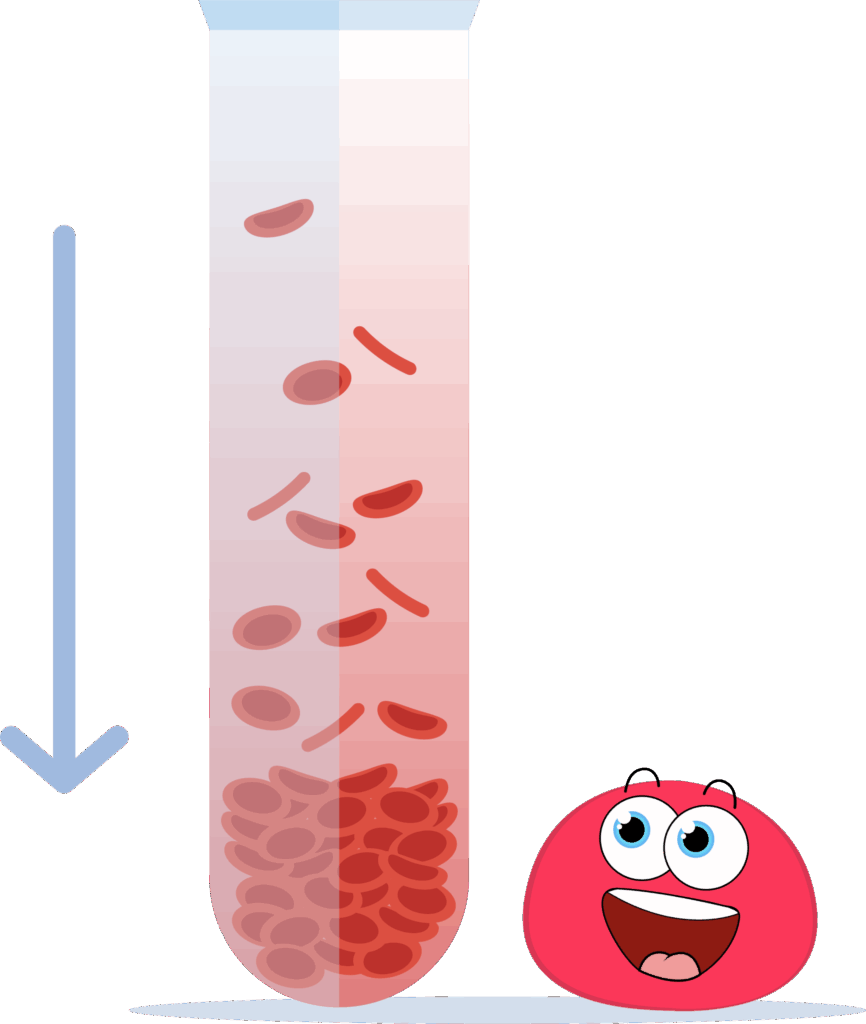Say Goodbye to Outdated Sed Rate Testing!
Traditional ESR methods lose accuracy if samples aren’t processed or refrigerated within 4 hours — a major challenge for busy modern labs.
ALCOR® Scientific’s iSED® ESR analyzers offer 7x more flexibility, empowering your lab to streamline sample transport, reduce workflow bottlenecks, and ensure consistently reliable results.
Introduction
What is an ESR test and how does it work?
Erythrocyte Sedimentation Rate (ESR) — often called the “sed rate” — is one of the most established and widely performed lab test worldwide. It’s a non-specific but essential tool for screening and monitoring inflammatory conditions.
When inflammation is present in the body, proteins in the bloodstream increase, causing red blood cells in a blood sample to clump and settle more quickly. Traditional ESR tests measure how much red blood cells settle over a set time — with higher ESR values indicating a greater level of inflammation.


Traditional sed rates
The problem with traditional ESR testing
Traditional ESR testing is racing against the clock.
Once collected, blood samples must be tested or refrigerated within just 4 hours—or accuracy takes a hit. As blood samples age, ESR values begin to degrade. While refrigeration can help, maintaining proper temperature control during transport is often unreliable and inconsistent.
In today’s healthcare landscape, testing delays are common. Samples often travel long distances without temperature control, and once the arrive, staffing shortages can cause further delays.
The result? Many ESR tests are run well past the 4-hour stability window, making the results unreliable. Your patients and lab teams deserve better.
ESR testing Revolutionized
iSED® ESR analyzers maximize sample stability
iSED® ESR analyzers utilize novel technology to take a modern approach to sed rate testing. They work by measuring red blood cell aggregation — the first step of the red blood cell sedimentation process — while traditional ESR methods measure later phases of sedimentation. This innovative, direct measuring of red blood cell aggregation has several benefits including more rapid, standardized results as well as radically improved sample stability.
Greater Stability = Greater Reliability
Unlike conventional ESR methods, which require testing or refrigeration within 4 hours, iSED® ESR analyzers offer unmatched flexibility. Samples collected in standard EDTA tubes remain stable for up to 28 hours at room temperature, or up to 48 hours if refrigerated — over 7 times longer than Westergren and modified Westergren methods. This expanded window ensures accuracy even when unexpected transport or testing delays occur.

Quicker Results
Fully automated results in less than 20 seconds.
Fully Automated Workflow
Minimizes precious hands-on time and limits impact of environmental factors and human error.
Improved Sample Stability
Proven to extend blood sample stability by 7 times the industry standard.
Conclusion
It's time to rethink your sed rate testing
If your current ESR samples can’t remain at room temperature for more than 4 hours, can you really trust the results? It’s time to question your current ESR testing method. With iSED® ESR analyzers and a longer sample stability window, you can feel more confident in your results. Better for labs. Better for patients.
Sed rates are performed too often to risk compromised results due to processing delays. Contact ALCOR® Scientific today to increase confidence in your results.
